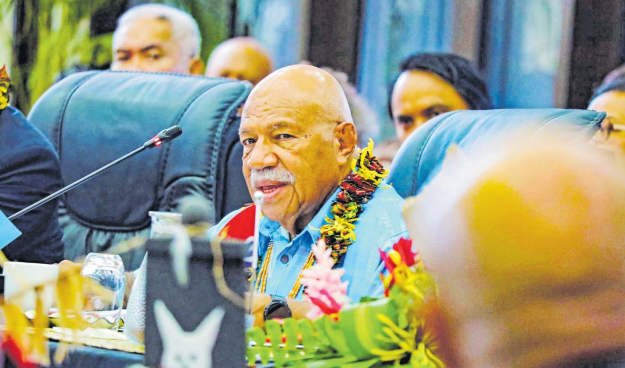The Fiji Truth and Reconciliation Commission (TRC) quietly moved its work to the Civic Centre in Suva earlier this week.
Its mandate clear: to create a safe space for survivors, to unearth the buried stories of our political upheavals since 1987, and to recommend a path toward lasting social cohesion.
Chairperson Marcus Brand has emphasised that this is a process of truth, not criminal prosecution. It operates within the confines of our current imposed Constitution, unable to strip away the legal immunity that shields key figures from our past.
But the most critical test for the TRC will not be found in the heartbreaking testimonies of survivors, as essential as they are. The true measure of its transformative potential will be revealed in the testimony it receives from the one man who stands at the centre of our nation’s original sin of coups: Prime Minister Sitiveni Rabuka.
The question now is not if he will testify, but how. Will he meet this historic moment with the courage it demands? Will he offer the TRC — and the Fijian people — not just another rehearsed expression of vague regret, but a full, unvarnished, and factual account of the events of 1987?
The nation does not need to hear another political justification. It needs to hear the truth about the human toll — the families torn apart, the careers destroyed, the deep ethnic fissures widened, and the democratic spirit raped and abused. This is the pivotal choice that will define Rabuka’s legacy.
He now stands at a crossroads between two futures for his place in history. Down one path, he remains the former strongman who, even as a sitting Prime Minister, remained protected by the very constitutional immunity his own actions helped to necessitate.
He could offer a cautious, limited testimony, acknowledging the past in broad strokes while carefully avoiding any admission that could threaten his position.
This path secures his political foothold but forever chains his legacy to the shadows of 1987.
It would render the TRC a hollow exercise, proving that ultimate power remains unaccountable. Down the other path lies the statesman.
This is the road less travelled, paved with risk but leading to redemption. On this path, Rabuka would voluntarily disarm himself of legal and political defences.
He would step before the Commission and, with raw honesty, detail the decisions, the miscalculations, and the consequences of his actions.
He would lend his voice not to obfuscate, but to clarify; not to defend, but to explain. Such an act would achieve what the TRC’s mandate alone cannot: it would shatter the wall of silence and impunity.
It would signal to every Fijian that no one, not even the most powerful, is above the nation’s need for truth. It would inject the Fijian TRC with the same moral force that made South Africa’s process legendary — not because of its legal powers, but because of the breathtaking courage of its participants.
The TRC has laid the groundwork. But the architecture of national healing remains incomplete without a cornerstone of voluntary accountability.
The quiet work of gathering stories is essential, but it requires a public act of contrition to become a true national reckoning.
The nation is waiting, Hon. Rabuka. Will you choose to be remembered as the leader who clung to immunity, or the statesman who prioritised Fiji’s truth over his own protection?
Your testimony is the key that can unlock a future not just for you, but for all of us. Fijians.



